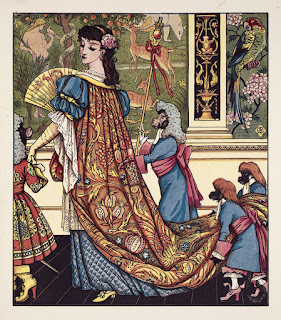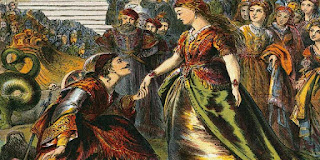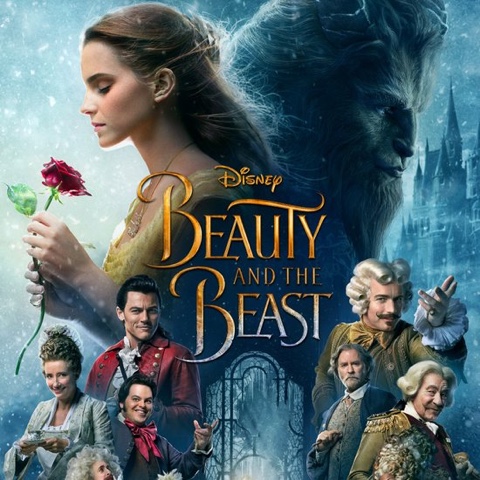Colonialism and the Beast
The Problem
As someone who loves the tale, I'm not sure to what to do with this information. Does it also apply to the source tale, Cupid and Psyche? In that tale, the lover is rumoured to be a monster, but is in fact a god. Is that better or worse? Or just the same? I don't know.... many writers of the nineteenth century and even earlier were cognisant of empire, race and otherness, and shared the belief in the superiority of the European over the colonised Others whom they considered racially inferior and less civilised (Orientalism 14). Although there are general expectations that literature and culture are "politically and even historically innocent" (Orientalism 27) they are actually closely imbricated in the process of political and cultural hegemony. Thus, in tales of Beauty and the Beast we can trace the background of imperialism, and the negotiation and anxiety about the Other.
How Could I Have Missed It?
I was also very interested in a number of artworks (including one by Pablo Picasso) portraying the artist as the Minotaur, or perhaps the Minotaur as the shadow side of the hero Theseus, who comes to kill him... it was impossible not to associate this with Ed saying, “I am the Kraken,” and the notion of seeing yourself as a monster.
But how much harder is it to take a look at the monster lurking inside you, and how much easier to project the image of the monster onto the Other?
And there's the very difficult balance. I'll always be attracted towards characters who see themselves as monsters. Who are fighting their own inner demons. Who are both Theseus and the Minotaur. But what happens with that when the same character stands in danger of being Othered and made a monster of by people who have historically stood in a position of power? That's the point I missed.
My fellow-fan, who I inadvertently offended, identified themselves as being Brown and Indigenous, therefore identifying themselves with Ed, "who is canonically Brown and Indigenous". I have to confess that I had not completely thought of Ed in this way. I had seen the fact that he is played by Taika Waititi as constituting representation for Maori people. But I admit I had not seen him as "canonically Brown and Indigenous" because it is not mentioned in the script, and because all we know of the historical Blackbeard's heritage is that he was said to be born in Bristol.
Why had I not seen Ed in this way? Because I am White. Why had I not immediately picked up on the post-colonial implications of Beauty and the Beast? Because I am White. That's what White Privilege means. It means you don't have to think about your colour. It doesn't matter that I am asexual or greygender or neurodiverse or Northern or working class or anything else. In that part of my identity I am privileged, and exempt from all that communal trauma.
That's why I didn't see it.
Just this morning, I read again about the problem of (inadvertent) racism within the OFMD fandom. And we all know how folktales have been used to uphold racist viewpoints. So I'm putting this out there.
Be aware.
And if you make a mistake - like I did - apologise, make it right, and learn from it. We're all in this together.






Comments
Post a Comment